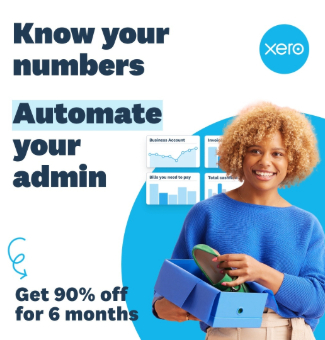Side hustles are a great way to earn extra cash or test the waters before committing to a new business idea. Their popularity has skyrocketed since the start of the pandemic and throughout the cost-of-living crisis, with new research suggesting that nearly 50% of Brits want to start or grow a side hustle.
If you’ve started a side gig or are considering doing so, it’s important to be aware of your legal obligations. You may be confused about the tax implications or unsure whether to register as a limited company or sole trader. These are important considerations, all of which we address below.
Key takeaways
- Register for Self Assessment if your side hustle income exceeds £1,000 to ensure compliance with tax obligations.
- Consider forming a limited company for tax efficiency and personal asset protection as your side hustle grows.
- Selling personal possessions typically doesn’t incur tax unless profits exceed £6,000; report gains to avoid penalties.
Setting up a limited company is optional
First and foremost, there is no legal requirement to register a side hustle as a limited company, regardless of your trading activities or how much you earn.
A limited company is simply one of several legal structures through which you can run a business. It’s a popular option, especially for people earning a substantial amount or looking to grow their business long-term. However, it’s not appropriate for everyone.
Most people initially operate small side hustles on a self-employed basis. This is the most straightforward approach if you’re simply looking to earn a bit of extra cash to supplement your main source of income.
Essentially, if you start making money on the side and it’s not through a company or partnership that you’ve set up, you’re using the default setting of a self-employed sole trader.
Depending on how much income your side hustle generates, you may or may not need to register with HMRC as self-employed to report and pay tax on your additional income.
Let’s look at the rules to help you figure out your position. We’ll then explain when it may be beneficial to register a company.
If you earn more than £1,000 a year from your side hustle
You must register for Self Assessment with HMRC if your annual gross trading income (i.e. without deducting expenses) from your side hustle is more than £1,000. This limit is known as the annual trading allowance.
The allowance applies to individuals who receive trading income from:
- self-employment – e.g. selling new or second-hand goods online, at auctions, or at car boot sales and markets (except when selling certain unwanted personal possessions)
- casual services – e.g. babysitting, food delivery, cleaning, gardening, tutoring
- hiring out personal equipment that you own – e.g. power tools
- online content creation – i.e. income from your social media channels, including advertising and sponsorships
Similarly, you need to register if you receive over £1,000 in rental income from property other than your main home. This limit is known as the annual property allowance.
If you rent furnished accommodation within your main home, you can use HMRC’s Rent a Room Scheme instead. You will be automatically entitled to:
- £7,500 of tax-free property income if you don’t share this rental income with anyone
- £3,750 of tax-free property income if you share this rental income with someone else (e.g. a spouse)
Under this scheme, the tax exemption is automatic if you receive less than £7,500 in rental income. This means you don’t need to tell HMRC or pay any tax. If and when you earn more than the applicable exempt amount, you must complete a Self Assessment tax return.
You can use HMRC’s handy online tool to check if you need to report additional income that’s not from your employer.
Registering for Self Assessment
The registration deadline is 5 October after the tax year in which you first start earning income from your side hustle. For example, if you start receiving income between 6 April 2025 and 5 April 2026, you have until 5 October 2026 to register for Self Assessment.
Once registered, you must report your side hustle income to HMRC by filing a Self Assessment tax return after the end of each tax year. You need to include details of all sources of income for the year, including the wages you received from your main job.
HMRC will use this information to work out how much Income Tax and Class 4 National Insurance contributions (NIC) you need to pay on your additional earnings. You are then responsible for paying what you owe to HMRC.
However, registering for Self-Assessment and reporting your side hustle income doesn’t always result in a tax liability. Filing a return ensures that your tax position is correct.
Therefore, even if you make more than £1,000, you may not have any tax or NIC to pay. This may be the case if you have expenses to deduct, or if your annual income from all sources is within your tax-free Personal Allowance (up to £12,570 per year).
If you make less than £1,000 a year from your side hustle
You don’t need to register for Self Assessment if your annual gross trading income is £1,000 or less. In this situation, your additional earnings are considered ‘casual income’ because the amount is within the annual trading allowance.
However, there are exceptions. You still need to tell HMRC about this casual income if:
- you’re not eligible for the trading allowance (e.g. if you receive your side hustle income through your own company)
- you are required to register for Self Assessment and declare your income on a tax return for some other reason
You can still register your side hustle for Self Assessment even if you’re not required to do so by law. This may be beneficial if you:
- want to claim tax relief on any trading costs incurred for your side hustle
- are planning to apply for a mortgage or other kind of personal loan
- anticipate that your side hustle earnings will exceed the trading allowance at some point in the near future
Give it some thought to determine whether it’s worthwhile registering with HMRC.
If you sell personal possessions
The rules are slightly different when selling personal possessions. These are physical items that you own and have used, such as clothes, jewellery, furniture, paintings, and antiques.
If you are just selling personal possessions that you no longer want, you normally don’t need to report or pay tax on the income you receive for them.
However, if you sell one of these items for £6,000 or more and make a profit, you may have to pay Capital Gains Tax on the gain. You must report the income through the ‘real time’ Capital Gains Tax service or by filing a Self Assessment tax return.
Selling through online marketplaces
On 1 January 2024, HMRC introduced new rules requiring digital platforms (‘online marketplaces’) in the UK to collect and report seller information and income.
Since then, much discussion and confusion has been about a so-called ‘side hustle tax’. To clarify, there has been no change to the actual tax rules, and there is no such thing as ‘side hustle tax’.
The only change is the requirement for digital platforms to report seller information to HMRC. Online sellers have always been liable to tax on their supplementary income from side hustles. HMRC is simply cracking down on deliberate and accidental tax evasion.
Your details will be reported to HMRC if both of the following apply in a calendar year:
- you make at least 30 sales of goods
- you receive at least 2,000 euros (about £1,700) for those sales
If you sell goods or services through any online marketplaces (such as Etsy, eBay, Amazon, Vinted, Airbnb, Uber, or freelancer apps), you should receive a copy of this reported information from whichever platform(s) you use.
You can then refer to this information to check your income and expenses. It should help you determine if you made a profit and whether you need to report and pay tax on the supplementary income.
For more information, read HMRC’s guidance on the rules when selling goods or services on a digital platform.
Should I register my side hustle as a limited company?
As previously mentioned, there’s no legal requirement to register your side hustle as a limited company at any point. You can operate in a casual, self-employed capacity indefinitely. For many people who are simply trying to top up their wages, this is the easiest option.
However, setting up a company is worth considering if you’re making a substantial amount of money from your side hustle or planning to turn it into a serious business venture.
- When should I convert from sole trader to limited company?
- How to pay yourself through a limited company
- What does limited liability mean?
Running a company carries more responsibility, and you’ll have to deal with additional filing and reporting obligations. Nevertheless, if you want to establish and grow your business, the potential benefits of trading through a company often outweigh the drawbacks.
The three main advantages of a limited company are as follows:
1. Tax efficiency
If the extra income you earn from your side hustle pushes you into a higher Income Tax bracket, trading through a limited company may be more tax-efficient.
Self-employed people pay Income Tax on all taxable profits. Depending on how much you earn, this could be as high as 45% (or 48% if you live in Scotland). Companies, on the other hand, pay a maximum of 25% Corporation Tax on their profits.
As a company owner, you can also minimise your personal tax liability by withdrawing profit in the form of dividends. You can do this in addition to or instead of paying yourself a director’s salary.
Tax on dividend income is charged at special rates between 8.75% and 39.25%, depending on your total annual earnings from all sources. Moreover, unlike wages, salaries, and self-employed profits, you don’t pay National Insurance contributions on dividend income.
2. Protecting your personal assets
As a sole trader, you and your business are one and the same. This means there is no distinction between your business assets and personal assets. If anything goes wrong, you are legally responsible, which puts your personal finances and other assets at risk.
However, companies are legally separate from their owners, which means they are responsible for their debts. By registering your side hustle as a limited company, your personal finances are protected from business debts and liabilities. This is known as ‘limited liability’ protection.
3. Professional image
Companies are subject to stricter rules and regulations than self-employed people. This includes the requirement to report and publicly disclose certain information, such as financial statements and details of ownership.
Consequently, the general public and other businesses tend to view companies more favourably than sole trader operations.
If you’re serious about establishing and growing your side hustle over the long term, trading through a company could help you create a more professional and trustworthy brand image.
Register your side hustle with Quality Company Formations today
At Quality Company Formations, we offer a range of affordable packages for setting up a limited company online. By following our simple 4-step online company formation process, your new company could be up and running in just a few hours.
If you have any questions about our services or need help registering a company, please call our London-based team of experts on 020 3908 0044.
For more limited company advice, tax guidance, and small business insights, explore the Quality Company Formations Blog.














Join The Discussion